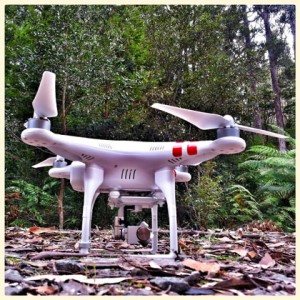Forestry crown research institute Scion will trial the use of drones for use in forestry management next month and hopes to be an early adopter of imminent rule changes allowing them to be flown beyond line of sight. Source: Netguide
Scion has teamed up with Aeronavics to field test unmanned aerial vehicles mounted with interchangeable remote sensing technologies that can transmit vital information on various aspects of forestry management such as tree health and pests.
It’s thought the technologies may also prove useful in biosecurity surveillance and eradication operations, along with fire management.
Scion science leader Bryan Graham said the public and privately funded trials are about validating the drone technology, which will have far-reaching implications beyond just the forestry industry.
New Zealand is at the forefront of testing unmanned aerial flights and is set to have the world’s first regulatory framework that allows beyond line of sight flights.
The Civil Aviation Authority is currently awaiting sign off from the Transport Minister on a new part 102 rule that would allow commercial drone operators to apply on a case-by-case basis for the safe operation of beyond line of sight flights rather than the blanket ban on them that currently applies in other countries.
Allowing drones to operate beyond the operator’s line of sight could provide economic gains of up to $190 million a year to the farming, forestry and energy sectors, according to a recent report commissioned by Callaghan Innovation.
Graham said UAVs could change the way forests are managed.
“This will let us know more about the trees, whether it is a good tree, one that should be pulped, or one that could be exported. That kind of information at the moment is a bit lacking,” he said.
The two days of trials will cover between 500 and 1000 hectares of central North Island forest and have been funded by Scion, but Graham said several forestry companies have indicated they’ll also fund trial flights in the new financial year from July.
The flights cover remote stretches of land that aren’t economically viable to measure by conventional aircraft and are too hard to access on foot.
Online marketplace Trade Me also said it was funding trials of delivery drones involving Australian start-up Flirtey and New Zealand Land Search and Rescue (LandSAR).
The first trial was launched to demonstrate Flirtey’s ability to search for a missing person near Lake Roxburgh in the South Island and deliver emergency medical services.
Flirtey, based in Sydney and Nevada, is aiming to be the world’s first UAV delivery company and has already conducted over a hundred successful test deliveries of textbooks with its partner Zookal in the US.
Trade Me said it thinks commercial drone delivery at scale is still some way from being meaningful whereas the chance to make a practical difference in search and rescue works feels like it could be much closer.
Being at the forefront of regulatory change in the industry will give New Zealand companies first mover advantage over other competitors.








